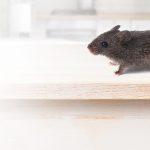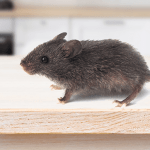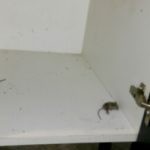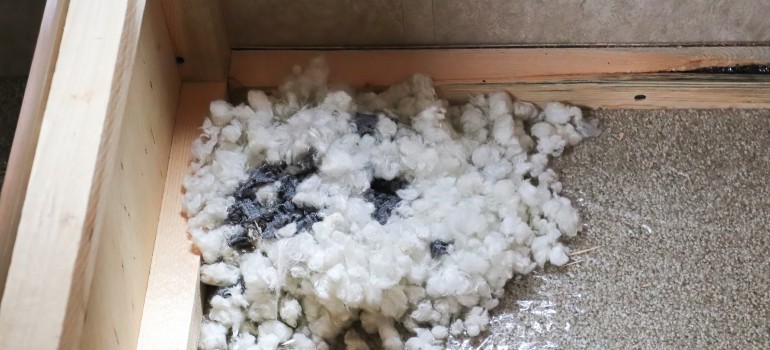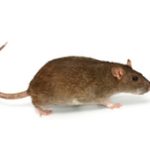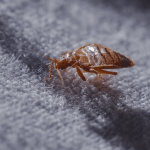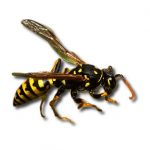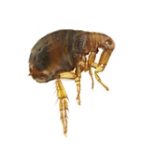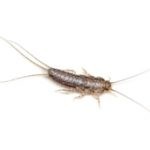Difference Between Mice and Rats
Rats and mice are among the most common household pests, yet it can be difficult for most people to distinguish between them. Successful pest control and prevention requires understanding the differences between a mouse and a rat.
Mice and rats may seem similar, but they differ significantly in size, behaviour, and nesting habits. The key to effective rodent control is identifying if you have mice or rats in your house.
Find out how to identify a rat from a mouse and the visual differences between them.
Types of Damage Mice and Rats Can Cause to Your Home
Mice and rats can cause serious damage to homes, leading to structural deterioration, fire hazards, food contamination, and health risks.
- They gnaw through surfaces, electrical installation, thermal insulation and more – Rats and mice chew on literally everything they can get their paws on. Electrical wires, ductwork, HVAC units, walls, foundations, you name it and they’ve already sunken their teeth into it.
- Gnawing on wood and walls – Mice and rats have continuously growing teeth, compelling them to gnaw on wooden beams, furniture, and drywall. Over time, this weakens structures and can lead to costly repairs.
- Chewing through pipes – Rats, in particular, are strong enough to gnaw through plastic and even metal pipes, leading to leaks, water damage, and mould growth.
- Rats and mice contaminate the area with droppings and urine – Rodents invade food storage areas, contaminating food with their droppings, urine, and saliva. This can lead to serious health risks, including Salmonella and Hantavirus infections.
- Various diseases transmitted by rodents – Mice and rats carry illnesses such as plague, salmonellosis, trichinosis, Lyme disease, lethal for both you and your beloved pets.
- Infestations can become expensive to handle – The more unwanted house guests you have, the pricier their visit gets. If you don’t handle the invasion on time, Mr. and Mrs. Rat start to make babies and these babies can cost you up to £450. To maintain a safe and secure living environment, it is crucial to eliminate mice infestations immediately.
Physical Differences Rats vs. Mice
One of the most noticeable differences between mice and rats is their size. Rat droppings are larger, around 12 mm, whereas mouse droppings are smaller, about 3-6 mm, with pointed ends. Mice and rats leave different footprints – mouse tracks are small and close together, while rat tracks are larger and spaced further apart.
Mice prefer to nest indoors in walls, attics, and stored materials. Rats are more likely to burrow outdoors but may invade basements and crawl spaces.
Mice leave small, fine bite marks; rats leave larger, rougher marks. Mice produce high-pitched squeaks; rats make louder scratching and gnawing noises. Rats leave greasy smear marks along walls while mice leave fewer visible marks.
| MOUSE | RAT | |
| Body Length | 6-9 cm (2-4 inches) | 20-25 cm (8-10 inches) |
| Tail Length | 8-10 cm (3-5 inches) | 15-20 cm (6-8 inches) |
| Ears | Large relative to body | Small relative to body |
| Muzzle | Wide muzzle, blunt and large | Sharp muzzle, narrow |
| Legs | Small relative to body | Large hind feet |
| Eyes | Small | Large and prominent |
| Breeding | 4-16 pups per litter, 7-8 litters per year | 5-10 pups per litter, 3-6 litters per year |
| Eating habits | Likes a large variety of foods but prefers cereals. Consumes 3g of food per day and can survive without water for long | Omnivores – eat everything, even meat. Consume up to 30g of food per day and need regular water drinking |
| Lifespan | Mice live 9-12 months and are sexually active from 1 and a half month. | Rats live from 9-18 months and are sexually active 2-3 months after birth |
| Property damage | Rats and mice both gnaw on wood, paper, cloth. They drill holes in walls, furniture, electrical appliances and chew on wiring, which can cause a short circuit and engulf your property in flames. Contaminates your food and that of your pet and damages crops in your garden. | |
| Diseases rats and mice carry | Hemorrhagic fever, Salmonella, Leptospirosis, Tularemia and Hantavirus | |
How To Tell If You Have Mice or Rats?
Rodent droppings are one of the most obvious signs of an infestation. Mice droppings are small, pointed at both ends, and scattered in large numbers. Rat droppings are larger, often capsule-shaped, and found in concentrated areas.
Rodents chew continuously to keep their teeth from overgrowing. Small, fine nibble marks on food packaging, furniture, and electrical wires are typical for mice. While larger gnaw marks, often on wooden structures, pipes, and even concrete indicate rats.
Rodents leave tracks in dusty areas such as basements or attics. Mice leave small footprints with a fine tail drag mark. Larger footprints with a more pronounced tail mark are distinctive for rats.
Mice leave faint grease marks along baseboards. While rats leave darker, more noticeable smudges due to their oily fur.
Behavioural differences between mice and rats
You won’t believe how unalike the two creatures are behaviour wise. Rats are a bit shy, and we don’t mean that they blush. They are very cautious about new things. The buggers need some get-to-know time when it comes to a new object, while doing so they choose to avoid it. So, if you decide to put down traps, first set some that won’t hurt the animal. This way the rat will get used to it and next time you lay down a functioning one, it won’t be afraid to go near it.Mice, on the other hand, are a bit more curious. They like to play detective and have an acquired taste for the new and mysterious. To catch one, you just need to place a trap, anywhere you sense their presence.
If you are planning to plant some bait for the imposters, bear in mind that they have a home range. And what is a home range? It is the limited area both types of rodent inhabit. It is no larger than necessary to acquire food, shelter, and water. If the conditions are good, the range is no bigger than 10 feet, and if there is no proper access to the described life necessities, the range can expand up to 150 feet. Rats have a wider range than mice.
What do rats eat compared to mice
Mice prefer grains, seeds, and plant-based foods but will eat almost anything if necessary. Rats are omnivorous and less picky, consuming meat, grains, fruits, vegetables, and even pet food. A mouse is more likely to chew through food packaging, contaminating stored goods. While rats can tear into rubbish bins, destroy wooden structures, and gnaw through pipes or electrical wiring. Rats are much more destructive due to their stronger teeth and larger appetites.
Do mice and rats have different breeding and nesting habits
Mice and rats have interesting living preferences, too. While a mouse likes to build nests in a hidden place, near a food source, the second one prefers to dig under buildings, along fences, and under plants and debris.
Mice are prolific breeders, capable of reproducing as early as 6 weeks old. A female can have up to 10 litters per year, with each litter containing 5–12 pups. Rats also reproduce quickly, but they tend to have fewer litters per year. A female rat can have up to 6–7 litters annually, each containing 6–12 pups.
Mice prefer to build nests in warm, sheltered areas, typically inside walls, attics, or behind furniture. They often nest in secluded spaces close to food sources. Meanwhile, rats are more versatile in their nesting locations. While they will nest indoors, they are equally likely to nest outdoors in burrows, sewers, or under sheds. Rats favour larger spaces, such as basements or crawlspaces.
Difference Between Adult Mice and Young Rats
But how can you make the difference between an adult mouse and a young rat? Don’t they look similar? To an uninformed person, yes, they would look similar. But there are subtle signs that can help you in determining the rodents kind. A rats head and feet are visibly bigger in proportion to its body, their faces are chubbier and have wider noses. In comparison, mice have small, triangular heads, tiny noses, and little paws. Basically, they are way cuter than rats. Another point to make is that an adult mouse is practically half the size of a baby rat.
Is it possible to have mice and rats at the same time?
Mouse and rat coexistence is highly unlikely. Rats and mice are both highly territorial animals. In many cases, one species dominates the other because they compete for similar resources, such as food, water, and nesting areas. Since rats are larger and more aggressive than mice, they tend to drive them away from shared territories.
Rats can, and do, kill mice. Mice, like every other living thing, have a sense of self-preservation. When they detect a rat, even only their odour, they flee the area. An interesting fact is that if a lady mouse is pregnant and take a whiff of a rat, she is more likely give birth to fewer babies.
When two species appear to be present, you are probably observing different life stages (adults and young) of the same species or two different species of mice or rats.
If you have any suspicions that your home might be a hotel for either mice or rats, the first thing you need to do is to book a mouse control service. A professional company can schedule you an inspection to make sure what kind of pest they are dealing with and treat it accordingly. Don’t try to get rid of the creatures yourself, especially by poisoning them. The wrong amount of rodent poison, consumed by your pet, for instance, can put an end to his life. In cases like these, you better leave it to the professionals.
Consider that we give an information about the difference between rats and mice, as well as what damages and diseases each of them can carry. However, we don’t advise you on how to get medical care.



